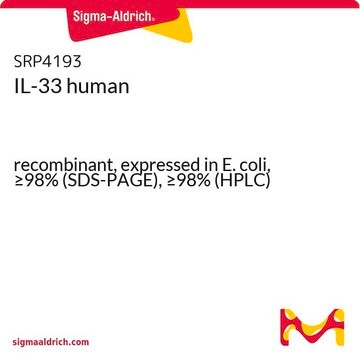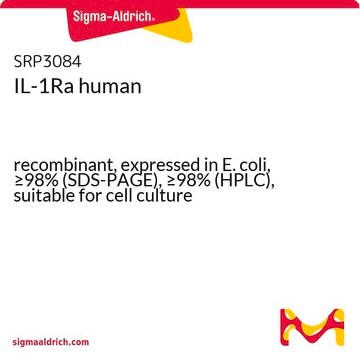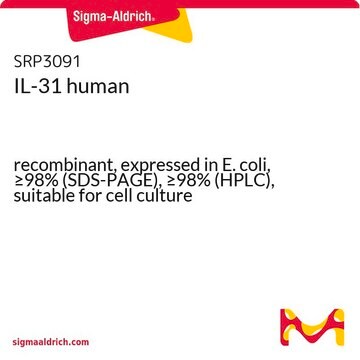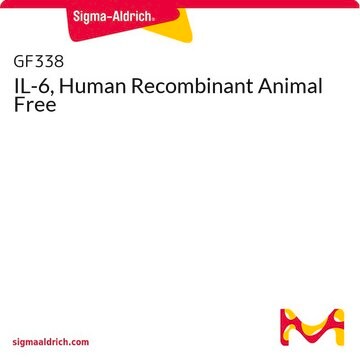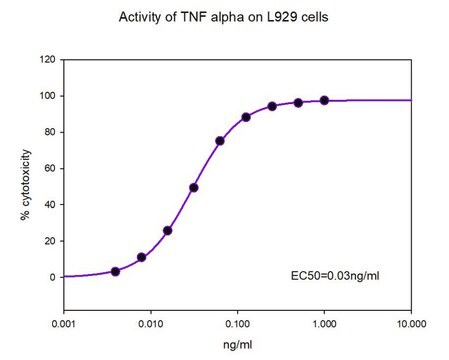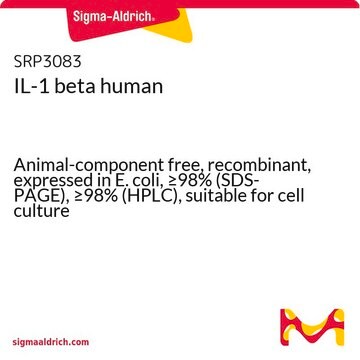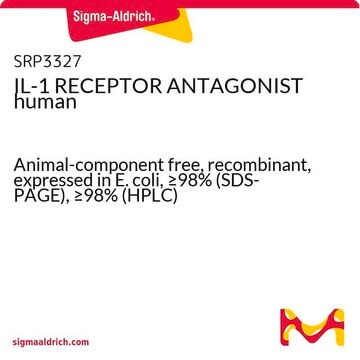SRP3275
IL-33 human
Animal-component free, ≥98% (SDS-PAGE & HPLC), recombinant, expressed in E. coli, lyophilized
Synonym(s):
NF-HEV
About This Item
Recommended Products
product name
IL-33 human, Animal-component free, recombinant, expressed in E. coli, ≥98% (SDS-PAGE), ≥98% (HPLC)
biological source
human
recombinant
expressed in E. coli
assay
≥98% (HPLC)
≥98% (SDS-PAGE)
form
lyophilized
potency
≥0.05 ng/mL ED50
mol wt
17.9 kDa
packaging
pkg of 10 μg
impurities
<0.1 EU/μg endotoxin, tested
color
white to off-white
UniProt accession no.
shipped in
wet ice
storage temp.
−20°C
Gene Information
human ... IL33(90865)
General description
Biochem/physiol Actions
Physical form
Reconstitution
Storage Class
10 - Combustible liquids
wgk_germany
WGK 1
flash_point_f
Not applicable
flash_point_c
Not applicable
Certificates of Analysis (COA)
Search for Certificates of Analysis (COA) by entering the products Lot/Batch Number. Lot and Batch Numbers can be found on a product’s label following the words ‘Lot’ or ‘Batch’.
Already Own This Product?
Find documentation for the products that you have recently purchased in the Document Library.
Our team of scientists has experience in all areas of research including Life Science, Material Science, Chemical Synthesis, Chromatography, Analytical and many others.
Contact Technical Service